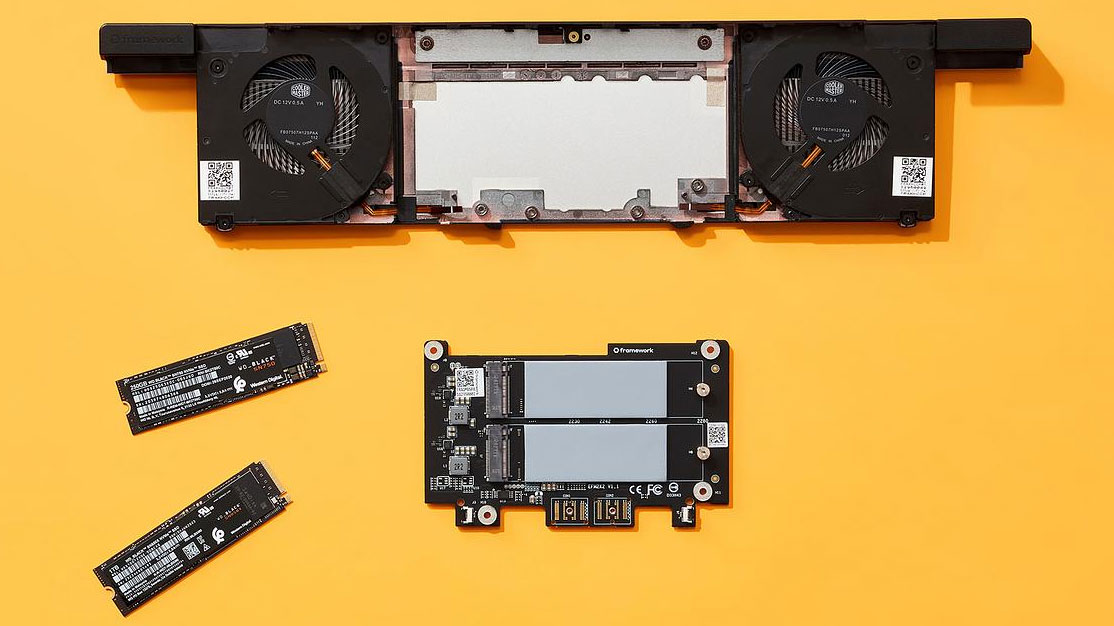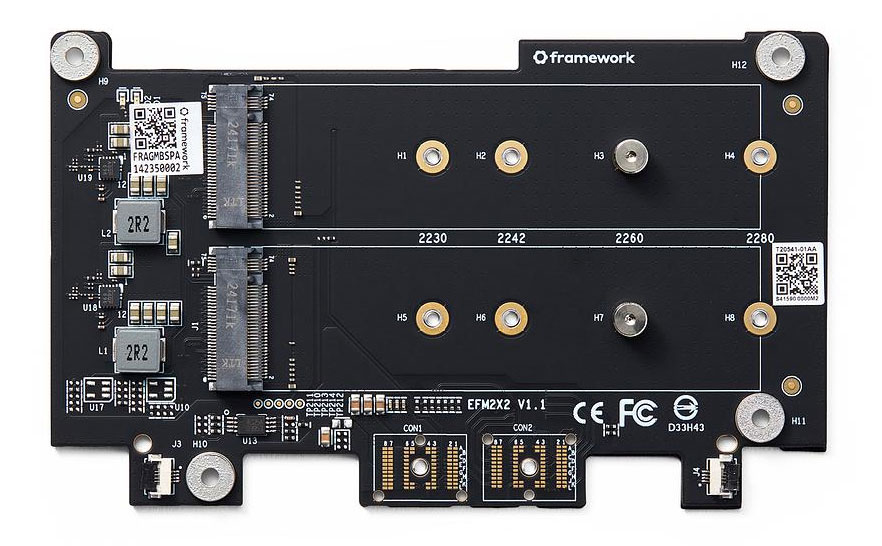
Framework just released a module for the Framework Laptop 16 Expansion Bay, allowing you to add up to two 8TB M.2 2280 SSD modules to the device. This would let you have as much as 32TB of storage on the laptop: one 8TB M.2 2280 and one 2TB M.2 2230 SSD mounted internally, two 8TB M.2 2280 SSDs on the Expansion Bay, plus up to six 1TB expansion cards... Framework says that its $39 dual M.2 adapter will slot easily into the open central area in the Expansion Bay Shell, and you only need the graphics module interposer (which comes with the package) to update your laptop to the latest BIOS to ensure compatibility with it. This makes it easy to upgrade the storage on the device and is in line with the company’s ethos of easy user upgradability and serviceability.
Happy to see you folks doing well.Can't wait for your products to become available in India.You miscalculated.You can pack 32 TB of NVM storage:• 2×8 TB on the bay• 1×8 TB + 1×2 TB inside• 6×1 TB in expansion cards ⇐ You forgot theseThat's a total of 32 TB. 😎December 17, 2024
The company launched the Framework 16 Laptop in 2023, and it’s designed for gaming and content creation — that’s why it also came with an optional AMD Radeon RX 7700S discrete GPU. However, those who didn’t need a dedicated graphics card, but simply wanted the larger 16-inch 16:10 screen would have a lot of empty space within the chassis. The dual M.2 adapter is the first module that Framework released that will take advantage of this potentially unused space, allowing users to add as much as 16TB of extra storage between the cooling fans.
You’re also not limited to 2280 M-key devices, as the adapter also supports 2230, 2242, and 2260 sizes. This makes it a pretty flexible add-on, allowing you to pretty much use any SSD you already have on hand.

Aside from the above, the company also said that it has tested out M.2 AI accelerators on the adapter and that it expects “at least one of you is going to try hooking up a desktop GPU through an M.2 to PCIe slot adapter”. This module makes the Framework 16 laptop far more flexible than it already is, and the company even open-sourced the schematics and reference CAD of the Expansion Bay so more enterprising users can start coming up with their own modules.
Framework’s approach to repairability and upgradeability is a breath of fresh air in an industry that seemingly wants to lock you into ecosystems and force you to buy a new device every time something is wrong with your old one, or capacity becomes an issue. While Framework isn’t as large as Asus or HP, its continued success is giving consumers hope that we might have a future where we can have light and portable laptops with the the longevity of a desktop PC.







